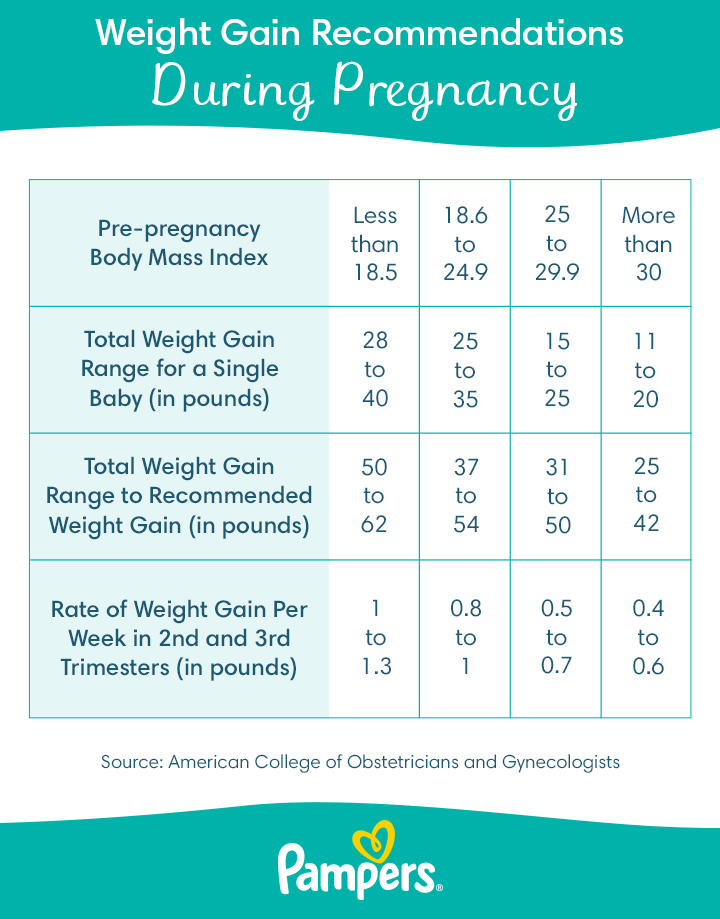
Calendar Gain Pregnancy Weight: A Comprehensive Guide
Introduction
Pregnancy is a transformative journey that brings about significant physical and hormonal changes. One of the most noticeable changes is weight gain, which is essential for the healthy development of the baby and the well-being of the mother. Understanding the concept of calendar gain pregnancy weight can help expectant mothers track their weight gain and make informed decisions about their prenatal care.
What is Calendar Gain Pregnancy Weight?
Calendar gain pregnancy weight refers to the gradual increase in weight that occurs throughout the pregnancy, following a predictable pattern. This weight gain is primarily attributed to the growth of the baby, the placenta, the uterus, and the increased blood volume.
Recommended Weight Gain Guidelines
The Institute of Medicine (IOM) has established recommended weight gain guidelines based on a woman’s pre-pregnancy body mass index (BMI). These guidelines are as follows:
- Underweight (BMI < 18.5): 28-40 pounds
- Normal weight (BMI 18.5-24.9): 25-35 pounds
- Overweight (BMI 25-29.9): 15-25 pounds
- Obese (BMI ≥ 30): 11-20 pounds
Factors Influencing Weight Gain
Several factors can influence the amount of weight a woman gains during pregnancy, including:
- Pre-pregnancy weight: Women who are underweight or overweight before pregnancy may need to gain more or less weight, respectively.
- Multiple pregnancies: Carrying twins or multiples can lead to increased weight gain.
- Gestational age: Weight gain typically accelerates in the second and third trimesters.
- Activity level: Active women may gain less weight than sedentary women.
- Diet: A healthy diet rich in fruits, vegetables, and whole grains can help control weight gain.
Tracking Weight Gain
Regular prenatal checkups provide an opportunity to track weight gain and ensure it aligns with the recommended guidelines. Expectant mothers can also monitor their weight at home using a scale. It’s important to weigh oneself at the same time each day, preferably in the morning after using the bathroom.
Excessive Weight Gain
Excessive weight gain during pregnancy can increase the risk of complications such as gestational diabetes, preeclampsia, and macrosomia (large birth weight). Women who are gaining weight rapidly or excessively should consult with their healthcare provider.
Insufficient Weight Gain
Insufficient weight gain during pregnancy can also be a concern, as it may indicate inadequate fetal growth or nutritional deficiencies. Women who are not gaining enough weight should also seek medical advice.
Benefits of Healthy Weight Gain
Maintaining a healthy weight gain during pregnancy offers numerous benefits, including:
- Optimal fetal growth and development: Adequate weight gain provides the necessary nutrients for the baby’s growth and development.
- Reduced risk of pregnancy complications: Healthy weight gain can help prevent gestational diabetes, preeclampsia, and other complications.
- Improved labor and delivery outcomes: Women who gain weight within the recommended guidelines are more likely to have a shorter labor and fewer complications during delivery.
- Postpartum recovery: Healthy weight gain can facilitate a smoother postpartum recovery and reduce the risk of postpartum weight retention.
Tips for Managing Weight Gain
To manage weight gain effectively during pregnancy, expectant mothers can follow these tips:
- Eat a balanced diet: Focus on consuming nutrient-rich foods from all food groups.
- Limit processed foods, sugary drinks, and unhealthy fats: These foods provide empty calories and can contribute to excessive weight gain.
- Stay hydrated: Drink plenty of water throughout the day.
- Exercise regularly: Engage in moderate-intensity exercise most days of the week.
- Get enough sleep: Sleep deprivation can lead to hormonal imbalances that can affect weight gain.
- Manage stress: Stress can trigger overeating. Find healthy ways to cope with stress, such as yoga, meditation, or spending time in nature.
Conclusion
Calendar gain pregnancy weight is a normal and essential part of pregnancy. By understanding the recommended weight gain guidelines and tracking their weight regularly, expectant mothers can ensure they are gaining weight at a healthy rate. Maintaining a healthy weight gain during pregnancy promotes the well-being of both the mother and the baby. By following the tips outlined in this article, women can effectively manage their weight gain and enjoy a healthy pregnancy.